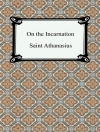A leading scholar of ascetical studies, Richard Valantasis explores a variety of ascetical traditions ranging from the Greco-Roman philosophy of Musonius Rufus, the asceticism found in the Nag Hammadi Library and in certain Gnostic texts, the Gospel of Thomas, and other early Christian texts. This collection gathers historical and theoretical essays that develop a theory of asceticism that informs the analysis of historical texts and opens the way for postmodern ascetical studies. Wide-ranging in historical scope and in developing theory, these essays address asceticism for scholar and student alike. The theory will be of particular interest to those interested in cultural theory and analysis, while the historical essays provide the researcher with easy access to a significant corpus of academic writing on asceticism.
Об авторе
Richard Valantasis holds degrees in Historical Theology, Church History, and New Testament and Christian Origins from Harvard University, where he received his doctorate in 1988. His academic research and writing has focused on the theory of asceticism and the Greek ascetical tradition of Late Antiquity. He has taught at Harvard University, Saint Louis University, Hartford Seminary, and the Iliff School of Theology in Denver, Colorado. He is a co-editor of the Oxford University Press reference volume, Asceticism, and is known for his ascetical reading of the sayings traditions in The Gospel of Thomas (Routledge, 1997) and The New Q: Translation and Commentary (Trinity International, 2005). He is author of Third-Century Spiritual Guides (Fortress, 1991), Centuries of Holiness (Continuum, 2005), The Beliefnet Guide to Gnosticism and Other Vanished Christianities (Doubleday, 2006), and Walking the Byzantine Road (forthcoming); he is the editor of Religions of Late Antiquity in Practice (Princeton University Press, 2000). Dr. Valantasis is Professor of Asceticism and Christian Practice and the Director of the Anglican Studies Program at Candler School of Theology / Emory University.







![Обложка Brian Schrag & Julisa Rowe: Community Arts for God's Purposes [Chinese] 貼近神心意的社群藝術 Обложка Brian Schrag & Julisa Rowe: Community Arts for God's Purposes [Chinese] 貼近神心意的社群藝術](https://static.worldofdigitals.com/thumb_webp/740/9781645083740.webp)




